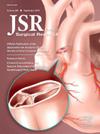普外科住院医师手术听写实践的趋势、认知和变化及其对住院医师表现和护理效率的影响:改善受训者的教育和培训体验
IF 1.7
3区 医学
Q2 SURGERY
引用次数: 0
摘要
手术听写对准确的手术记录至关重要,影响患者护理、医疗法律标准和教育;然而,缺乏结构化的培训导致了质量和标准化方面的差距。本研究旨在探讨大三(研究生一年级和二年级)和大四(三年级到五年级)普外科住院医师听写练习的趋势和变化。方法对普通外科住院医师进行横断面匿名调查,探讨听写习惯、偏好和教育需求。调查涉及人口统计、听写方法、指导以及对初级和高级住院医师的看法。结果67.2%的受访者报告了听写病例,与初级(58.6%)相比,高年级(75%)更有可能听写重大和次要病例。大多数居民更喜欢听写,58.6%的青少年使用基于转录的方法,46.9%的老年人使用语音识别。听写提高了58.6%的初中生和62.5%的老年人的手术步骤保留,增强了对重复手术的准备。在本研究中,有58.6%的大三学生有正式的指导,而只有43.8%的大四学生有正式的指导,而大三学生和大四学生都没有正式的指导。75.0%的低年级学生和62.5%的高年级学生支持听写的早期正规教育。结论本研究强调了对手术听写进行结构化教育的必要性,特别是对初级住院医师,以提高记录质量和准备。研究结果强调了师徒关系和正式培训之间的严重差距,缺乏正式的指导和不一致的师徒关系机会对技能发展构成了重大障碍。本文章由计算机程序翻译,如有差异,请以英文原文为准。
Trends, Perception, and Variation in Operative Dictation Practices Among General Surgery Residents and Its Implications on Resident's Performance and Care Efficiency: Toward Improving the Educational and Training Experience of Trainees
Introducstion
Operative dictation is critical for accurate surgical documentation, impacting patient care, medico-legal standards, and education; however, lacking structured training causes gaps in quality and standardization. This study aims to examine the current trends and variations in dictation practices among junior (postgraduate year (PGY-1) and PGY-2) and senior (PGY-3 to PGY-5) general surgery residents.
Methods
A cross-sectional anonymous survey of junior and senior general surgery residents was conducted to explore dictation practices, preferences, and educational needs. The survey addressed demographics, dictation methods, mentorship, and perceptions of junior and senior residents.
Results
67.2% of respondents reported dictating cases, with seniors more likely to dictate both major and minor cases (75%) compared to juniors (58.6%). Oral dictation was preferred by most residents, with 58.6% of juniors using transcription-based methods and 46.9% of seniors using voice recognition. Dictation improved operative step retention for 58.6% of juniors and 62.5% of seniors, enhancing preparedness for repeated operations. Formal mentorship was reported by 58.6% of juniors but only 43.8% of seniors, while formal orientation was not available to any juniors or seniors in this study. Early formal education in dictation was supported by 75.0% of juniors and 62.5% of seniors.
Conclusions
This study highlights the need for structured education in operative dictation, particularly for junior residents, to improve documentation quality and preparedness. The findings emphasize the critical gap in mentorship and formalized training, with a lack of formal orientation and inconsistent mentorship opportunities posing significant barriers to skill development.
求助全文
通过发布文献求助,成功后即可免费获取论文全文。
去求助
来源期刊
CiteScore
3.90
自引率
4.50%
发文量
627
审稿时长
138 days
期刊介绍:
The Journal of Surgical Research: Clinical and Laboratory Investigation publishes original articles concerned with clinical and laboratory investigations relevant to surgical practice and teaching. The journal emphasizes reports of clinical investigations or fundamental research bearing directly on surgical management that will be of general interest to a broad range of surgeons and surgical researchers. The articles presented need not have been the products of surgeons or of surgical laboratories.
The Journal of Surgical Research also features review articles and special articles relating to educational, research, or social issues of interest to the academic surgical community.

 求助内容:
求助内容: 应助结果提醒方式:
应助结果提醒方式:


